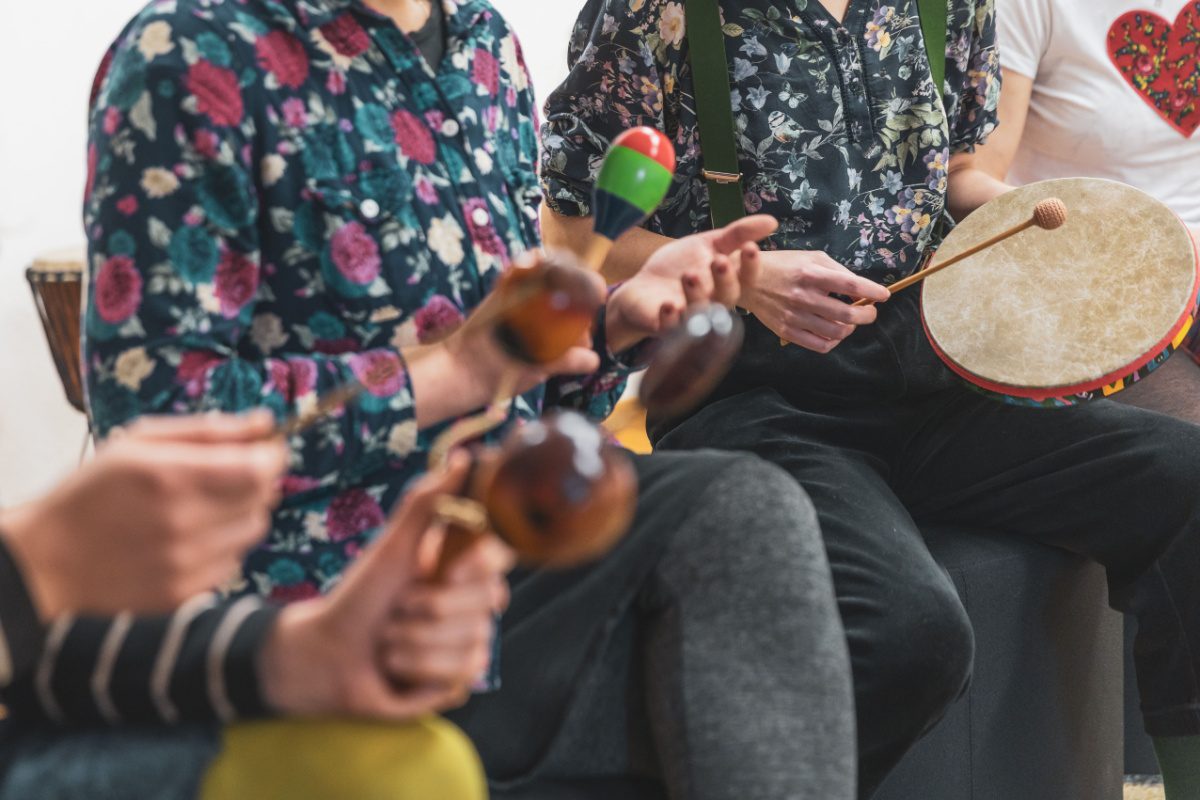Music has a unique power to touch our souls, lift our spirits, and bring people together. It’s a universal language that speaks to us all, regardless of our backgrounds or experiences. When you’re feeling down, the right song can transport you to a place of comfort and hope. Music stimulates our brains in profound ways, triggering the release of feel-good chemicals and evoking some of our most cherished memories. This innate connection between music and our emotions forms the foundation of music therapy, a powerful tool that’s gaining recognition in the field of problem gambling recovery.
Music therapy harnesses the healing potential of melodies, rhythms, and harmonies to support your recovery journey. It’s not just about listening to your favorite tunes, though that can certainly help. Music therapy involves working with trained professionals who use music-based interventions to address specific goals in your recovery process. From reducing stress and anxiety to improving mood and developing healthier coping mechanisms, music therapy offers a unique approach to healing that complements traditional treatment methods.
The Science Behind Music Therapy and Problem Gambling Recovery
Music therapy isn’t just a feel-good approach. It’s backed by scientific research. When you engage with music, whether by listening, playing, or creating, your brain lights up like a fireworks display. Multiple areas become active, including those responsible for emotion, memory, and decision-making. This neural stimulation can be particularly beneficial when you’re working to overcome problem gambling.
Studies have shown that music therapy can help reduce stress and anxiety, common triggers for gambling urges. It also promotes the release of dopamine, a neurotransmitter associated with pleasure and reward. By providing a natural and healthy source of dopamine, music therapy can help counteract the craving for the “high” that gambling often provides. Additionally, engaging in music therapy sessions can help rewire neural pathways, supporting the development of healthier habits and thought patterns.
Exploring Different Approaches to Music Therapy
Music therapy is far from a one-size-fits-all approach. Depending on your needs, preferences, and recovery goals, a music therapist might use many different techniques. These could include:
- Active music-making: This involves playing musical instruments or singing. It can help boost self-esteem, provide a sense of accomplishment, and offer a healthy outlet for emotions.
- Lyric analysis: Examining the words of meaningful songs can help you explore your feelings and experiences related to problem gambling.
- Guided imagery with music: This technique combines relaxing music with visualization exercises to promote emotional healing and stress reduction.
- Songwriting: Creating your own music can be a powerful form of self-expression and a way to process complex emotions.
- Rhythmic entrainment: Using rhythm to modulate your heart rate and breathing can help manage anxiety and promote relaxation.
Building Emotional Resilience Through Music
One of the key benefits of music therapy in problem gambling recovery is its ability to help you build emotional resilience. Problem gambling often stems from or leads to difficulties in managing emotions. Music therapy provides a safe and supportive environment where you can explore and express your feelings without judgment.
Through music, you can learn to identify and articulate complex emotions that might be difficult to put into words. This increased emotional awareness can be crucial in recognizing and managing triggers that might lead to gambling urges. Music therapy can also teach you healthy coping skills for dealing with stress, anxiety, and other emotions that might otherwise drive you towards problem gambling behaviors.
By engaging in music therapy sessions regularly, you can develop a toolkit of emotional regulation strategies. These might include using specific songs or playlists to calm yourself when stressed, engaging in rhythmic breathing exercises set to music, or using improvisation on an instrument to express and release pent-up emotions.
Enhancing Mindfulness and Present-Moment Awareness
Mindfulness — the practice of being fully present and engaged in the current moment — is a valuable skill in problem gambling recovery. It can help you break free from the cycle of rumination about past losses or anxiety about future bets. Music therapy offers unique ways to cultivate mindfulness and present-moment awareness.
When you’re fully immersed in creating or listening to music, you naturally enter a state of mindfulness. The act of focusing on the rhythms, melodies, and harmonies can anchor you in the present, providing a respite from racing thoughts or cravings. Music therapists can guide you through exercises that combine music with mindfulness techniques, helping you develop this skill in a way that feels enjoyable and natural.
Best of all, the skills you learn in music therapy sessions can easily translate into your daily life. You might find that humming a familiar tune or tapping out a rhythm helps you stay grounded when faced with triggers or stressful situations.
A Symphony of Hope: Music Therapy as a Path to Recovery
Music has the extraordinary ability to touch our hearts, soothe our minds, and inspire our spirits. By incorporating music therapy into your recovery journey, you’re treating symptoms while nurturing your whole self.
If you’re struggling with problem gambling or know someone who is, help is available. Call our 24/7 confidential helpline at 1-800-GAMBLER. We offer immediate support for you, your friends, and your family. We can help you find local help meetings and provide other crucial resources and information to support your journey towards a healthier, gambling-free life. Your path to recovery is unique, and with the right support and tools — including the transformative power of music therapy — a brighter future is within reach.



